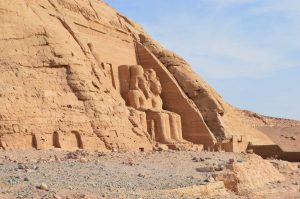CHHATRAPTI SHIVAJI MAHARAJ

Chhatrapati Shivaji Maharaj,
also known as Shivaji Bhonsle, was the founder of the Maratha Empire in Western India. He was born in 1630 in the hill-fort of Shivneri in Maharashtra and became a legendary figure in Indian history for his military prowess, administrative skills, and progressive governance.
Shivaji Maharaj’s
early life was marked by battles and skirmishes against the Mughal Empire, which was the dominant power in India at the time. He established a strong navy and fortified his territories, creating a base for Maratha power. He also initiated several reforms to improve the lives of his people, including the introduction of a fair taxation system and the promotion of agriculture and trade.
One of Shivaji’s most significant contributions
was the establishment of a just and equitable system of governance. He introduced the concept of “Diwani” (administrative) and “Rajdhani” (revenue) systems, which ensured that the administration was accountable to the people. He also promoted religious tolerance, allowing people of all castes and religions to serve in his army and administration.
Shivaji’s military campaigns against the Mughal Empire
and other neighboring kingdoms earned him great respect and admiration. He was a skilled strategist and tactician, and his army was known for its bravery and discipline. He successfully defended his territories against repeated attacks by the Mughal Empire and expanded the Maratha Empire to include parts of present-day Maharashtra, Karnataka, and Goa.
Despite his many achievements, Shivaji remains a controversial figure in Indian history. Some see him as a visionary who modernized the Indian political system, while others view him as a ruthless conqueror. Nevertheless, his legacy lives on, and he is widely revered as one of India’s greatest leaders and a symbol of Maratha pride and heritage.
One of the key aspects
One of the key aspects of Shivaji’s legacy was his commitment to preserving Hindu culture and values in the face of foreign aggression. He was a devout Hindu and sought to protect Hindu temples and shrines from destruction by Muslim invaders. He also established the custom of “Hatti” (tribute) payment, in which he would pay tribute to Hindu gods and goddesses as a symbol of his respect for Hindu tradition and to seek their blessings for his kingdom.
Shivaji’s military campaigns were characterized by his innovative tactics and use of guerrilla warfare. He utilized the terrain to his advantage and often employed surprise attacks to defeat his enemies. He was also known for his strategic use of fortifications, building numerous forts throughout the Maratha Empire to secure his borders and protect his people.
In addition
to his military prowess, Shivaji was also known for his administrative skills. He established a strong and efficient bureaucracy, and delegated authority to trusted officials who were responsible for collecting revenue, maintaining law and order, and managing public works. He also promoted transparency and accountability in government, and ensured that the common people had a voice in the administration of their own affairs.
Shivaji’s legacy
extends beyond India and has inspired many people around the world. He is revered as a symbol of Hindu resistance to foreign aggression and as a champion of Hindu culture and values. In recent years, there has been a resurgence of interest in Shivaji’s life and legacy, and many books, movies, and TV shows have been produced about him, further solidifying his place in the pantheon of Indian legends.
In conclusion,
Chhatrapati Shivaji Maharaj was a visionary leader who transformed the Maratha Empire into a dominant power in Western India. His innovative approach to governance, military tactics, and administrative reforms continue to inspire future generations. He remains one of the most beloved and respected figures in Indian history and is a symbol of Hindu pride and resistance to foreign aggression.
For inquires : Click here
Read more blogs: Click here
Featured image source: Image by Freepik







